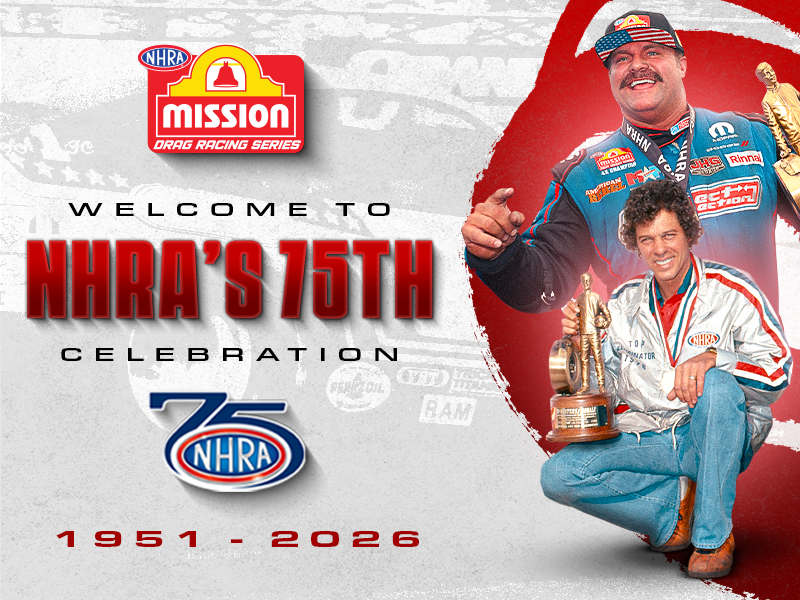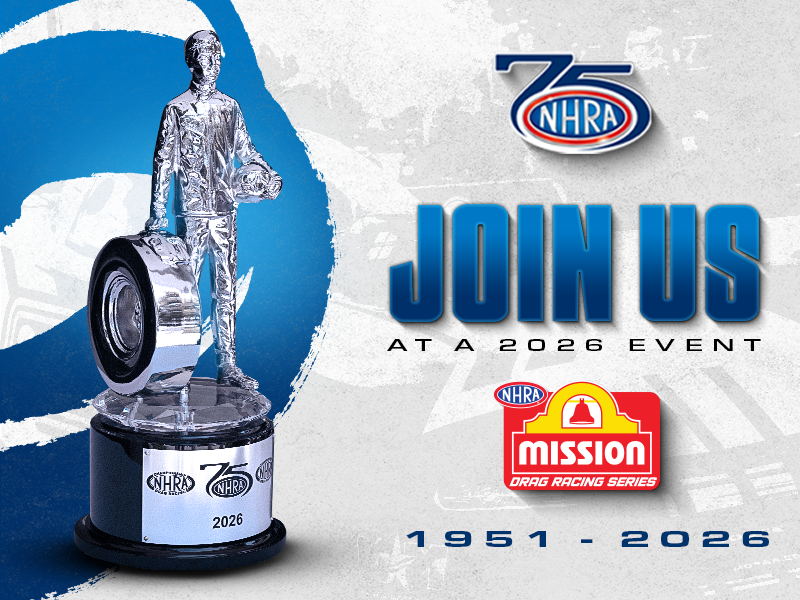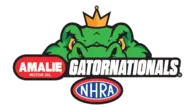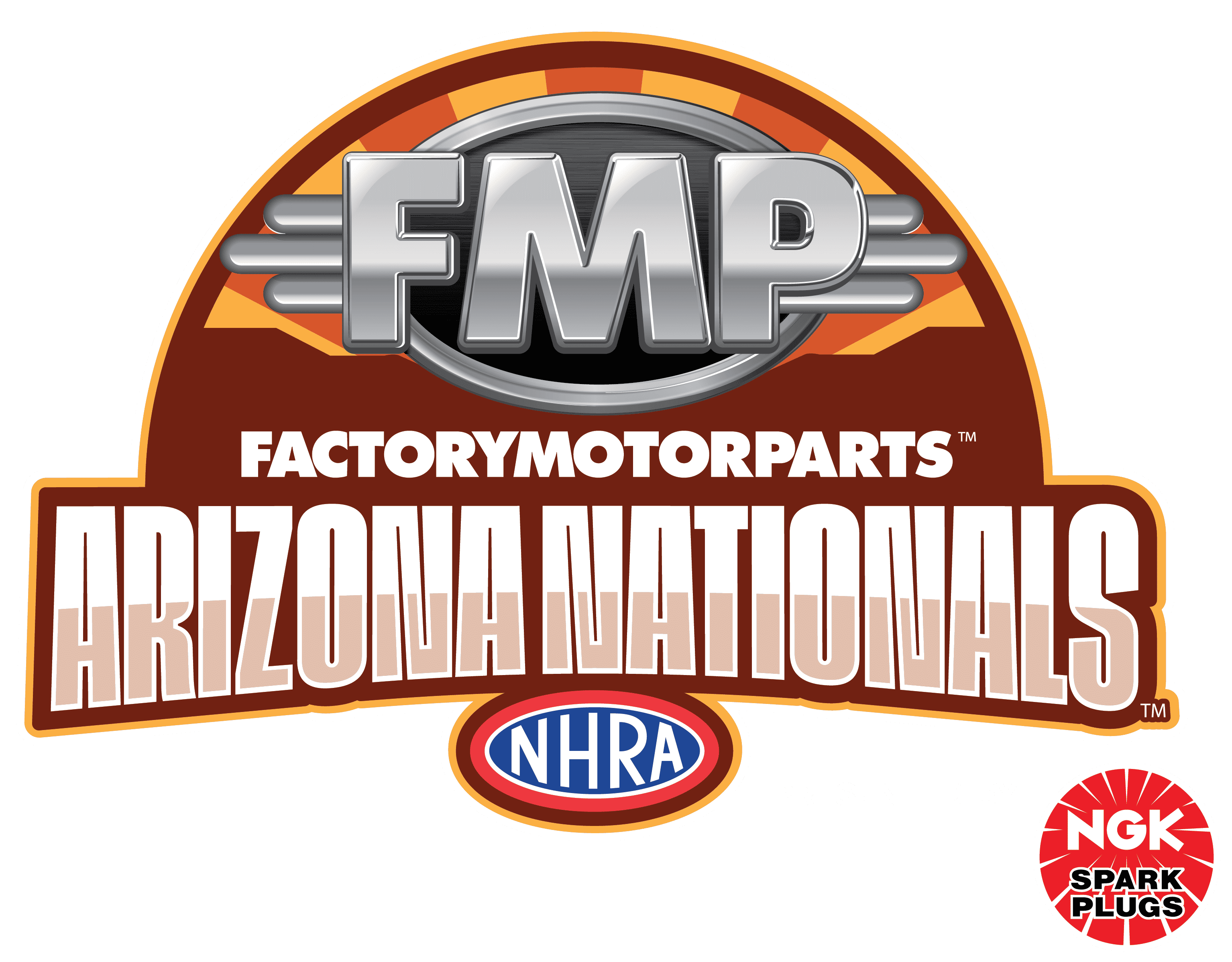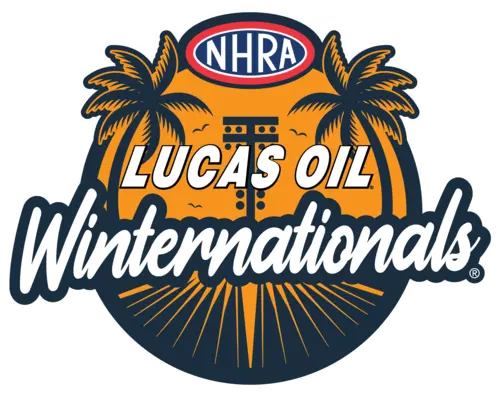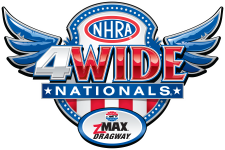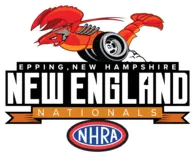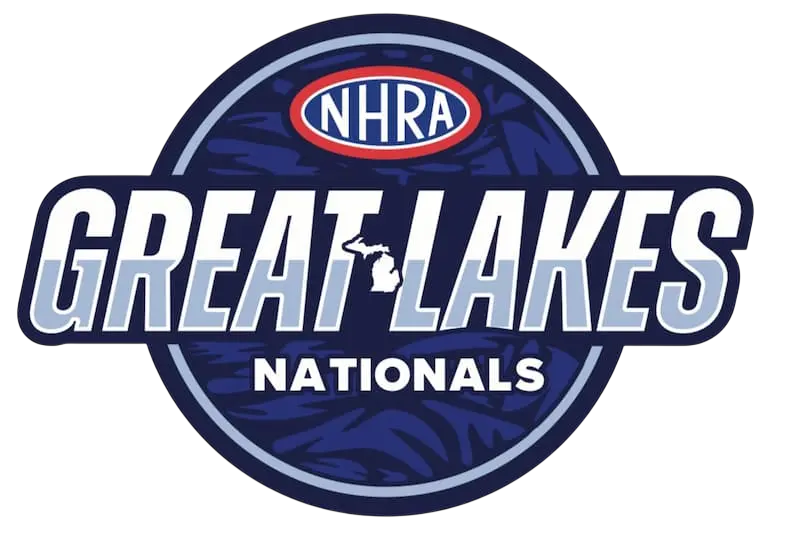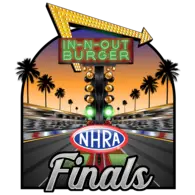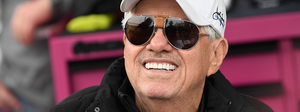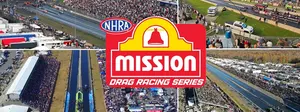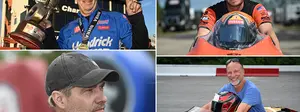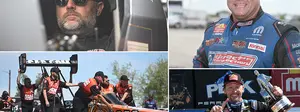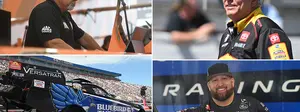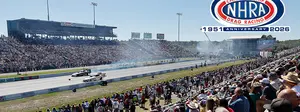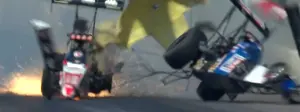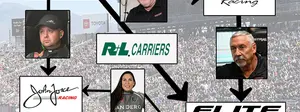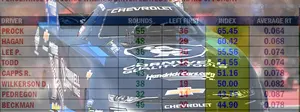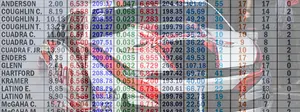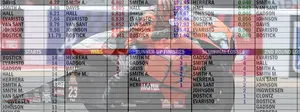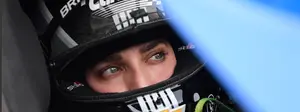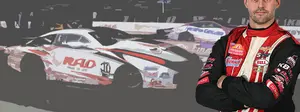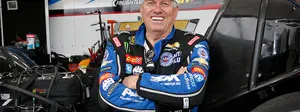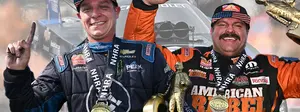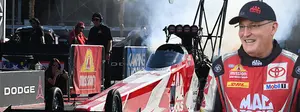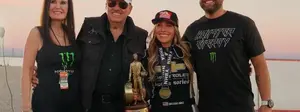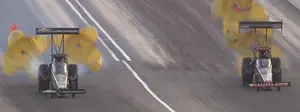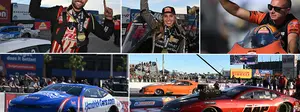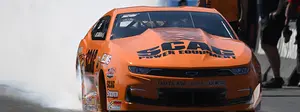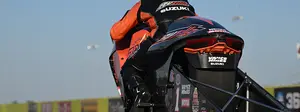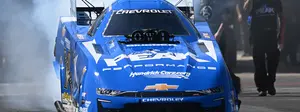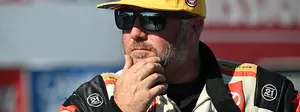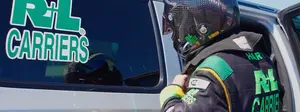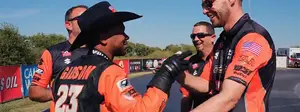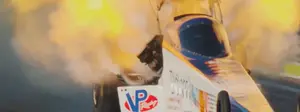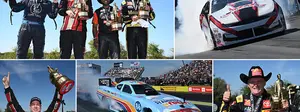Record run: The quickest pass in Pro Stock history
To give some perspective on the accomplishment that is Erica Enders running a 6.45 at 213.57 mph we caught up with Mark Ingersoll while he was testing in Tulsa to hear what went into the Elite Motorsports Chevrolet Camaro's record run.
|
Give us some insight on what the record-setting car is
The car was built by RJ Race Cars in 2018. It's our house car and the oldest car we have. It's been updated along the way and is fitted with a 2020 Camaro body. We've just worked over the years and developed that chassis. It's been back and forth with updates to get to where we're at right now. So all of our new cars are kind of built off that car. [Erica's] got a new car coming, but that's the car she's run since 2018. On the day of the record run, it was fit with a DRCE 4 engine with DRCE 2 heads.
If you had to guess, or do you know how many runs is that car made?
Probably 300 passes.
Let's talk about the conditions on race day
You know, when you get conditions like that, especially when you go out there and you only have one qualifying run and you don't do something good there, you're gonna not be racing. So, you just got conditions. I've never raced them. So, you know, we've tested in that conditions a little bit like in Florida during the winter, but, you just never really race on that. And with the track being green, basically from all the rain, it was kind of nice knowing what it was gonna do. You know what I mean? So that comes in handy.
What was the prep like for that car that day?
It was just, we do the same thing over and over and over. We just punch in all of our numbers and we rely on all of our data and it spits out a number and you just gotta go with it. You know what I mean? So, just kind of nervous because like I said, the conditions were definitely different than we're used to racing in. And, being in the back, I think we were sixth pair outta eight that time. So I had kind of tuned on seven cars. So I had some cars in front of it too, so that kind of helped knowing what everybody's got and, by the time we ran, I felt pretty good about it.
When you say you punch in the numbers, what kinds of things are you changing?
You got fuel and timing for sure. Jake Harrison does the fuel-injection tuning, so I really don't have a lot to do with that. I do all the chassis, clutch, and tranny tuning—and all that other stuff.
Talk about the difference in the setup from the previous day of qualifying.
Well, it was real close as far as the car set up, but just a different transmission, different rear end, of course. Different plus because the air was different. Okay. And that first qualifying run, the last thing I wanted to do was go out there and not qualify. You know what I mean? So we were kind of laid up on that first one and even on Aaron's car when he went to 46, on Saturday, I guess. I mean we knew what that was, so we knew how fast her car would be. We weren't going out there to run a 46. We were going out there to make it a nice run and it just, it just happened to do it, her car on that run went a little bit left and got out of the groove cause the truck was green and it was pretty loosely third gear and fourth gear. So, that kind of hurt her run, but you know, we knew we could correct all that. And I figured we would run that's about what I thought we'd run since he ran the .46 on Saturday. I thought we and .45 on Sunday, so it was kind of expected—but you never know—you know what I mean? But that's kind of what it should have ran.
We went to work over the winter and we knew we were down from last year. Like last year we were, you know, we just weren't fast enough. And we went to work this winter and tested quite a bit. And then we went to Bakersfield before Pomona and so we felt really good with what we've done. You never know until you get to Pomona and then, uh, when everybody's running on the same track and that looked really good.
Let's talk about the conditions of that day
I was kind of hesitant because you just don't ever get to run in conditions like those. I was confident in the car. How the track will take the power is the thing you never know, we have a machine that again, spits out a number, but a lot of times that thing doesn't tell all, you know what I mean? So, I felt pretty good about it, but just like I said, you never know. And then for [Erica] to be in the sixth pair out and having cars up in front of hers, you know, I kind of knew where everything was there. So I see, I was able to, you know, gain some confidence there for sure.
What else stands out about that run?
For me it's always, just giving her a chance to win. She usually rises to the occasion and I learned from being with her for years now that I just gotta give her a car, and let her do her thing. I felt good when it left and if it looks really good in low [gear] and goes in the second gear, it's gonna be fast. So once it left, I thought, 'that's pretty good,' you know what I mean?
And then the number popped up and you're so amped up about the run cause usually when she runs that much faster—she's going to win.
Give us some perspective on how much more power the car was making that day.
It was a 5 to 6 percent increase on a 1,500-hp engine, so figure about 60 hp more than what we normally see.



